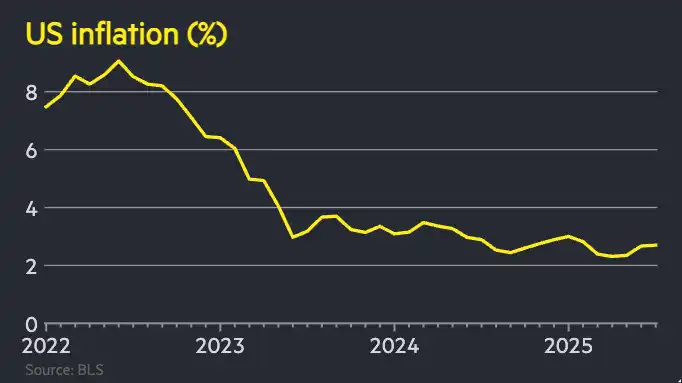The U.S. stock market saw a significant downturn in trading on Thursday (August 14, 2025), as new government data revealed that inflation remains more persistent than analysts had anticipated.
Table of Contents
Both the Dow Jones Industrial Average and the S&P 500 closed lower, reflecting widespread investor concern over the Federal Reserve’s potential response to curb rising prices. This latest economic report has injected fresh uncertainty into the markets, with many now bracing for a more aggressive monetary policy stance.
The sell-off was broad, affecting nearly every sector from technology to consumer staples. Investors are now closely watching for any signals from Fed officials about future interest rate hikes, as the central bank walks a tightrope between controlling inflation and avoiding a potential recession. The market’s reaction underscores its sensitivity to inflationary pressures and the overarching influence of Fed policy on investor sentiment.
📉 Key Market Movements
The day’s trading was marked by consistent selling pressure from the opening bell. The Dow Jones Industrial Average fell by over 400 points, while the S&P 500 registered a decline of approximately 1.5%. The tech-heavy Nasdaq Composite was hit particularly hard, dropping more than 2% as high-growth stocks, which are more sensitive to interest rate expectations, led the losses. Volume was higher than average, indicating strong conviction behind the selling trend.
🔍 Why Inflation Data Spooked Investors
The core of the market’s anxiety stems from the latest Consumer Price Index (CPI) report. While economists had hoped for signs of cooling, the data showed that core inflation, which excludes volatile food and energy prices, accelerated last month. This suggests that inflationary pressures are becoming more embedded in the economy.
Investors are concerned about several key factors:
- Aggressive Fed Action: Persistent inflation increases the likelihood that the Federal Reserve will implement larger and more frequent interest rate hikes.
- Impact on Corporate Earnings: Higher rates can slow down economic activity, potentially hurting corporate profits and leading to lower stock valuations.
- Recession Fears: The risk that the Fed’s aggressive tightening could push the economy into a recession is a primary concern weighing on the market.
What Analysts are Saying
Market analysts are now recalibrating their expectations for the remainder of the year. Many believe that volatility will remain high as long as the inflation picture is unclear. Some strategists suggest a defensive portfolio posture, favoring value stocks and sectors that are less sensitive to economic downturns. All eyes will now turn to the Federal Reserve’s next meeting, where their updated economic projections and policy decisions will set the tone for the market’s direction in the coming months.
More Topics
- US Economy – July PPI Report Exceeds Expectations
- Quantum Startup Aether Systems Secures Funding
- Innovate Pharma CEO Steps Down Unexpectedly
- China’s Central Bank Intervenes on Currency
- Global Auto Corp Delays EV Truck Production
- Weaker Retail Sales Signal Consumer Strain
- Private Equity Pushes into Renewables

